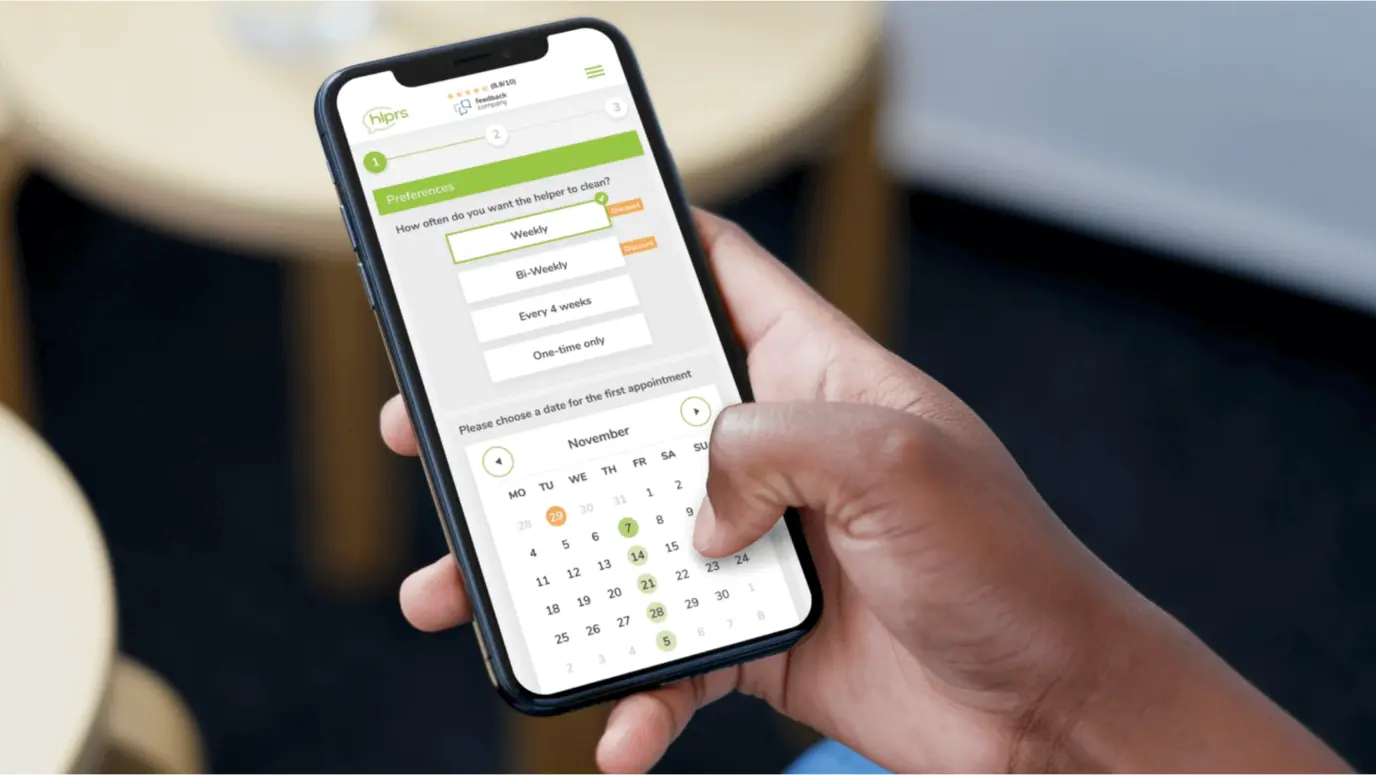4.9 on Clutch
Software Testing and QA Services
At Syndicode, we merge development and software testing services into a single activity. We use an analytical approach to quality assurance to minimize technical risks, cut time to market, and balance the project’s cost, quality, and speed.
QA and testing services we offer
As a software testing services company, we employ quality engineering experts skilled in functional testing, cloud solutions testing, and everything in between. With our help, you will gain a detailed understanding of your product’s quality components and establish control over every stage of the development process.
-
On-demand testing services
Leverage our software QA and testing services to add an extra pair of hands or a specialized talent to your team in order to meet requirements or schedule changes. Our quality testing engineers will step in and handle your project with precision and clear deliverables.
-
Mobile or browser compatibility testing
Our engineers test and debug your software to ensure a consistent customer experience across different browser or OS combinations and devices. Applying software test automation tools, we reach maximum test coverage in a minimal timeframe.
-
QA audit and process improvement
Tap into our software quality assurance services to get your development process analyzed, identify vulnerabilities, and get guidance for quality improvement. We use consistent benchmarks to ensure unbiased software review.
-
Security and penetration testing
We provide manual software testing services for focused vulnerabilities detection that automated systems cannot perform. This way, we detect network and system loopholes that may result in loss of information and revenue.
-
Performance testing
We use proven tools to give you a comprehensive view of your software performance. You’ll learn if your product’s response and processing times meet the standards, whether it’s resource-efficient, and its capability to scale under load.
-
QA automation testing
Our QA and testing services strategy involves intelligent automation framework usage to provide precision testing tailored to your acceptance criteria along with the fast execution. Due to minimal human intervention, automation testing reduces time to market up to 10 times.
Syndicode software testing services lifecycle
To prevent the risk of building a faulty functioning product, we insist on implementing software and application testing services right after the functional requirements have been determined. The QA team works alongside designers and developers, thus ensuring all the system parts are testable and match the standards.
-
Requirement analysis
Studying the project’s functional requirements, determining the scope and types of testing.
-
Planning
Preparing a test strategy for the project, making effort and cost estimates.
-
Case development
Developing test cases or scenarios, setting up a test environment, preparing the RTM.
-
Execution
Performing the tests, logging bugs into the tracking system, tracking the defects to closure.
-
Reporting
Analysis of defects, evaluation of the product testing completion criteria, preparing reports.
Types and methods of QA testing services we provide
-
Functional testing
As a part of our software QA services, we perform tests to check the system functions’ correspondence to the project requirements. Syndicode quality testing engineers start functional testing early in the development to minimize bugs, ensure code stability, correct element interaction, and check if the interface is comfortable for the user.
-
Non-functional testing
Security, survivability, usability, scalability, and flexibility tests are integral parts of quality software testing services. Non-functional testing lets us predict how the software will perform in certain conditions, like a sudden spike in traffic or different hardware configurations. Its omission may lead to instability of the finished product and poor UX.
-
Change-related testing
We repeatedly test software units to ensure that previously detected bugs were removed and no new defects have appeared. This way, our QA team confirms the thoroughness of software quality assurance and testing services, identifies the software parts deserving the most attention, and ascertains that everything works well.
-
Box testing
These types of quality assurance and testing services are a must for complex systems. It gives a comprehensive understanding of how your product reacts to all the possible scenarios of a user using and abusing it. A testing team looks for dead code wasting system memory, checks functions’ logic, and identifies cases that lead to glitches.
-
Static testing
Static methods of software testing services let us evaluate the product’s quality without executing its code. They can be applied early in the development process to minimize the chance of bug occurrence later, thus cutting TCO. Another benefit of static testing is that it involves all the development team members and fosters collaboration.
-
Dynamic testing
Our software testing services company uses dynamic testing methods for mission-critical projects to check the system’s response to varying conditions after the application has been built. In other words, dynamic testing helps to validate that the system returns the same desired result with different input versions.
Syndicode industry expertise
We provide QA and testing services based on our years-long experience. Our QA team addresses the clients’ need for fast releases by selecting the technologies and frameworks to best fit the project’s requirements and the development team’s expertise. Following the Agile approach, we don’t just test but ensure the results are distributed and timely acted upon.
-
Online marketplaces
As a software testing services company, we provide extensive QA functions from functional and performance testing to mobile device testing for your maximal market coverage.
-
Education
We deliver software QA services to K-12, higher education, and corporate learning organizations, emphasizing security and regulations compliance.
-
Logistics
Our in-depth experience in software quality assurance and testing services lets us implement seamless and scalable ERP, SCM, and other technologies integrations.
-
Ecommerce
Retail businesses benefit from our software testing services, including targeted UX testing, performance tests for stable work during sales, and more.
-
Entertainment
Our smart and rigorous software testing services ensure you get a crash-proof, fast-loading application that scales easily to fit high demand.
-
Fashion
Our software QA and testing services will help you streamline your fashion business processes by securing data migrations and multiple integrations.
-
Healthcare
We offer quality assurance and testing services to accelerate healthcare organizations’ digital transformation by improving their IT systems’ stability and compliance.
-
Rental
Our software testing services company employs experts who can mix and match technologies to ensure the most effective test coverage of rental software complex functionalities.
We provide testing and QA services for
After over 8 years of work, we know the challenges businesses face at different stages of their lives. Syndicode is a software testing services company that focuses on value. Thus, we rely on extensive planning and effective communication as a basis for quick and correct idea implementation that is beneficial for everyone involved.
-
Large businesses
We provide in-depth software testing services for large websites and solutions having an extensive user database and device coverage. Syndicode testers carefully observe defects, quickly deliver results, and ensure no software malfunctions affect your brand reputation. You can use our software QA services to scale your in-house team or test a newly developed product feature.
-
Small & medium businesses
Partnering with our software testing services company, you ensure your product excellence and pave the way for business growth. A view from independent experts may shed light on shortcomings to deter you from making invaluable decisions. What’s more, our QA testing services will save you from paying legal expenditures resulting from software not meeting the industry standards.
-
Startups
Quality software testing services by Syndicode help ensure your investment is worthy by verifying that your product meets the end-users’ expectations and brings true value. Applied at the beginning of the development process, QA reduces the costs by eliminating the causes of many potential problems. Being sure your product functions flawlessly, you can promote it confidently and look more attractive to investors.
Our engagement
To best serve your priorities, we offer flexible engagement options. Depending on your project demands, our QA and testing specialists may step in at any stage of your product development, assist with requirements setting and technology selection, create and execute tests, and participate in post-release maintenance.
-
Software testing services
Our software testing services team has the experience necessary to perform quality control of a project of any complexity. To validate the software before release, we invest a significant effort into researching the requirements and project documentation, choosing the best-fitting tools, creating custom scenarios for testing, and providing detailed reports for the tested functionality to be used for debugging.
-
QA Team Services
Our software QA services involve working with your project from the very beginning to detect and minimize the risk of untestable features implementation and ensure the final product meets the current market demand. A QA expert will participate in the design process to remove any gaps between the design and coding and give recommendations for the coding and testing processes optimization.
Reasons to outsource QA and software testing
With the rise of public security concerns and the growing customer expectations in terms of digital experience, software testing has become a big part of the software development process. This drives up the cost of software testing and elongates the development timeframes, so many businesses turn to third-party QA and testing services companies.
-
Costs saving
Outsourcing frees you from recruiting, hiring, training, and maintaining your workforce. You can also change the number of employees in your QA team with minimal notice. Moreover, outsourcing from offshore countries may cost 2-3 times lower than using the services of your local providers.
-
Reduced management effort
You may outsource software testing services while your core employees work on your product development. This way, you give up the test planning and execution and defect assessment meetings. Also, you decrease the time to market since your teams do not have to multitask, thus being more productive.
-
Access to talent
A software testing services company specializing in quality assurance has all the necessary resources to provide you with experienced testers whose knowledge is tailored to your project. They usually have access to the latest tools, a variety of devices, testing platforms, and cloud infrastructures to pick from.
Meet our team
-
 Dmytro CEO
Dmytro CEO -
 Tetiana Lead HR
Tetiana Lead HR -
 Oleksandr Software Engineer
Oleksandr Software Engineer -
 Oleksandr Software Engineer
Oleksandr Software Engineer
Frequently asked questions
-
What is software testing?
Software testing is a method to ensure the developed software product matches the client’s requirements and operates steadily. It involves examining the product’s parts and features, executing them, and comparing the obtained result with the expected one. In the process of software testing, defects, bugs, performance gaps, and missing requirements are detected and transferred to the development team to be fixed. Through testing, you can verify the digital product’s error-free performance, user data storage and management security, device compatibility, and more. These increase the product’s value, improve your reputation as a provider, and allow you to avoid post-development rework, thus saving time and money.
-
How to choose a reliable QA and testing services company?
A quality assurance specialist can assess and estimate risks of development defect occurrence at the early stage of development and create a plan to mitigate those risks. Therefore, a professional QA team should request a lot of information about your business, project, and related documentation to find a relevant solution. You might also want to check other clients’ reviews before contracting a company to see their previous experience and evaluate their approach to communication. Even if you’re looking for a specific service type, like mobile testing, it’s a good idea to check what else they provide. You can contact them for a broader range of services later and save time searching.
-
How much does software testing cost?
Generally, engineering test services cost about 15-40% of the total project development price. The cost of software testing varies depending on whether you’re developing a product from scratch or modifying an existing application, the number of testers, their rate, and what part of the development process they step in. Thus, a simple mobile app usually requires 2-5 testers, depending on the timeframe and what you need to test. The average hourly rate of a software tester ranges between $40 in Eastern Europe and $100 and higher in the USA. It is worth noting that the early QA team engagement helps to prevent expensive post-launch errors since they are often predicted at the planning stage or detected soon after being made. Also, the reputation losses from a buggy application tend to cost much more than timely testing services.
-
What types of software testing exist?
All software testing types can be broken down into four main categories: Functional testing determines whether software functions according to requirements; Non-functional testing checks how well software components work together and under different conditions; Change-related testing ensures that previously found errors were fixed and there are no new errors; Testing by knowledge of the system (box testing) is used for all-encompassing bug search both in behavioral testing and code review. Functional testing type includes a range of testing techniques: Unit testing, Integration testing, System testing, Sanity testing, Smoke testing, Interface testing, and Regression testing Beta/Acceptance testing Non-functional testing types involve several parameters such as UI/UX, security, installation, configuration, compatibility, reliability, localization, and performance testing. Performance testing checks the software performance under the expected load. In its turn, this testing type includes the following techniques: Load testing, Stability testing, Stress testing, Volume testing, and Scalability testing.
-
What is the difference between manual and automation testing?
Manual and automation testing differ by who executes the tests. In manual testing, a human tester writes and executes tests one by one to catch bugs and writes them down into a report. In automated testing, a tester uses pre-written scripts, tools, and software. Each method has its advantages and disadvantages. Thus, manual testing is time-consuming and is considered less precise due to the high risk of human error. Therefore, it is suitable for non-repetitive test cases where human observation is necessary, such as user-friendliness testing or customer experience evaluation. Automated testing is faster and more reliable than QA manual software testing services, especially when test cases are run repeatedly over a long period. This method is preferred for regression, performance, and load testing.








